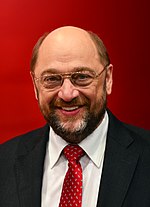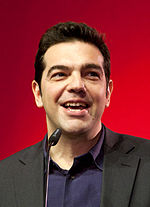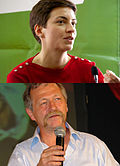
Back Europawahl 2014 ALS انتخابات البرلمان الأوروبي 2014 Arabic Eleiciones al Parllamentu Européu de 2014 AST Выбары ў Эўрапарлямэнт 2014 году BE-X-OLD Избори за Европейския парламент (2014) Bulgarian Eleccions al Parlament Europeu de 2014 Catalan Volby do Evropského parlamentu 2014 Czech Etholiad Senedd Ewrop, 2014 Welsh Europa-Parlamentsvalget 2014 Danish Europawahl 2014 German
| |||||||||||||||||||||||||||||||||||||||||||||||||||||||||||||||||||||||||||||||||||||||||||||||||||||||||||||||||||||||||||||||||||||||||||||||
All 751 seats in the European Parliament 376 seats needed for a majority | |||||||||||||||||||||||||||||||||||||||||||||||||||||||||||||||||||||||||||||||||||||||||||||||||||||||||||||||||||||||||||||||||||||||||||||||
|---|---|---|---|---|---|---|---|---|---|---|---|---|---|---|---|---|---|---|---|---|---|---|---|---|---|---|---|---|---|---|---|---|---|---|---|---|---|---|---|---|---|---|---|---|---|---|---|---|---|---|---|---|---|---|---|---|---|---|---|---|---|---|---|---|---|---|---|---|---|---|---|---|---|---|---|---|---|---|---|---|---|---|---|---|---|---|---|---|---|---|---|---|---|---|---|---|---|---|---|---|---|---|---|---|---|---|---|---|---|---|---|---|---|---|---|---|---|---|---|---|---|---|---|---|---|---|---|---|---|---|---|---|---|---|---|---|---|---|---|---|---|---|---|
| Turnout | 163,551,013 (42.54%[1] | ||||||||||||||||||||||||||||||||||||||||||||||||||||||||||||||||||||||||||||||||||||||||||||||||||||||||||||||||||||||||||||||||||||||||||||||
| |||||||||||||||||||||||||||||||||||||||||||||||||||||||||||||||||||||||||||||||||||||||||||||||||||||||||||||||||||||||||||||||||||||||||||||||
 Post-election composition of each member state's delegation | |||||||||||||||||||||||||||||||||||||||||||||||||||||||||||||||||||||||||||||||||||||||||||||||||||||||||||||||||||||||||||||||||||||||||||||||
| |||||||||||||||||||||||||||||||||||||||||||||||||||||||||||||||||||||||||||||||||||||||||||||||||||||||||||||||||||||||||||||||||||||||||||||||
| This article is part of a series on |
 |
|---|
|
|
The 2014 European Parliament election was held in the European Union (EU) between 22 and 25 May 2014. It was the 8th parliamentary election since the first direct elections in 1979, and the first in which the European political parties fielded candidates for President of the Commission.
The candidates, sometimes referred to by the German term Spitzenkandidaten (English: top candidates),[2] were Jean-Claude Juncker for the European People's Party,[3] Martin Schulz for the Party of European Socialists, Guy Verhofstadt for the Alliance of Liberals and Democrats for Europe Party, Ska Keller and José Bové jointly for the European Green Party and Alexis Tsipras for the Party of the European Left. The Alliance of European Conservatives and Reformists[4] and the European Alliance for Freedom declined to nominate candidates.
While the European People's Party lost ground to the Progressive Alliance of Socialists and Democrats, it remained the largest faction in the new Parliament, resulting in the EPP's nomination of Jean-Claude Juncker as Commission President at the European Council. In turn, the European Council accepted the nomination by a simple majority (only David Cameron and Viktor Orban voted against Juncker).
- ^ "It's official: Last EU election had lowest-ever turnout". EurActiv – EU News & policy debates, across languages. 7 August 2014.
- ^ "Commission hopefuls largely unknown on streets of Europe". Euobserver.com. 21 May 2014. Retrieved 22 May 2014.
- ^ "Jean-Claude Juncker: Experience. Solidarity. Future". European People's Party. Archived from the original on 17 November 2020. Retrieved 11 February 2021.
- ^ "EU Conservatives call single candidate election campaigns a '1950-style vision'". EurActiv.com. 24 February 2014.
Cite error: There are <ref group=lower-alpha> tags or {{efn}} templates on this page, but the references will not show without a {{reflist|group=lower-alpha}} template or {{notelist}} template (see the help page).











